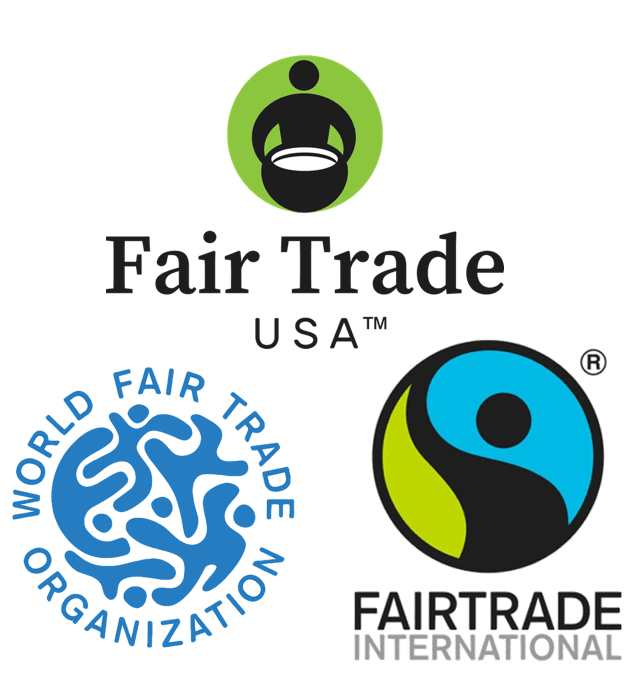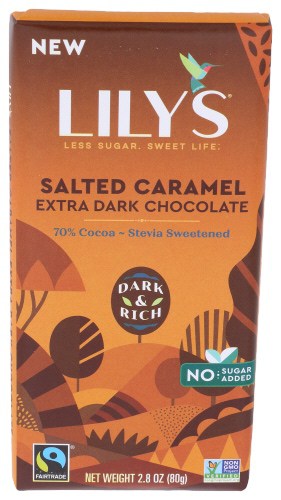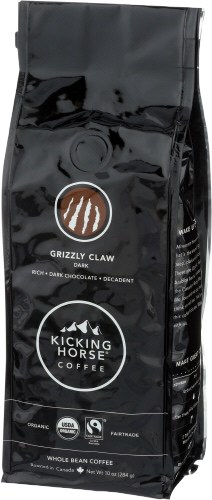What is Fair Trade, Anyway?
What is Fair Trade?
Fair trade is a principle; the belief that all producers should earn a living wage, work in safe conditions, and have control over when, where, and how they work.
It’s easy to take the labor laws that protect us for granted. Few of us would ever dream of working 80 hour weeks, performing back-breaking labor for pennies. However, for many farmers, craftspeople, and fisherfolk, located largely in developing countries, this is a reality.
The Fair Trade certification was created in an effort to ensure people producing vital goods, such as coffee, tea, or bananas, can earn a living and stay protected from exploitation.
There are a number of organizations internationally that provide certification.
These include:
- Fairtrade International
- Fair Trade USA
- World Fair Trade Organization
Each organization has slight differences in its certification process and structure, but their goals are the same; equity and safety for our world’s producers.
History of Fair Trade
The idea of fair trade goods goes back a long way. Some credit a Quaker coalition, the Quaker Free Produce Movement, as the very first fair trade initiative. Founded in 1826, The Quaker Free Produce Movement opposed all goods made by slave labor. They endeavored to provide communities with goods produced by free individuals, hence the name, “Free Produce Movement.”
They experienced some success, but the movement effectively ended with the abolition of chattel slavery in the United States. For the next 100 years, various organizations worldwide would be created to advocate for improved working conditions amongst the world’s poorest producers.
The movement as we know it today really began in 1992. A collective of Mexican coffee farmers came together to form the Fairtrade Federation. Two years later, the first fair trade product shipped; a chocolate bar made with fairly-sourced cocoa from Belize.
Since then, the movement has grown and grown. In 2018, sales of fair trade products topped $9 billion, and they only continue to climb. Millions worldwide have become involved with fair trade, either as customers or producers.
What are the Benefits?
Folks know that products bearing this certification are produced by people earning a fair, livable wage. What they might not know is that buying fair trade benefits communities in a variety of ways.

Providing producers with a living wage means more than making sure they have food on the table; it also means they are able to invest in their futures. They can afford the equipment and education to develop their operations further. Families can afford a level of nutrition and medical care that would normally be out of reach. Parents can send their kids to school. The idea is that over time, producers will be able to overcome poverty, build up their community, and provide others with fair employment.
Trade rules don’t just protect people; they also protect the environment. In order to be certified, products must follow certain rules regarding pollution and sustainability.
- Farmers must enrich soil through sustainable irrigation
- GMOs are forbidden
- Water must be sourced sustainably
- Agrochemicals must be used sparingly, if at all
- CO2 and waste emissions tightly controlled
While not all fair trade products are organic, many of them are. The standards set forth by the certifying organizations mean that these goods tend to be better for the planet and your body.
Where Can I Find These Goods? 
Many staple products, such as bananas, chocolate, coffee, and tea are available fair trade. These and other products are available at Martindale’s. To see if a product is certified, simply look for the logo on the packaging.
Buying fair trade products is an easy step to take towards a world that is more just, more kind, and more green. Look out for these items when you can.
